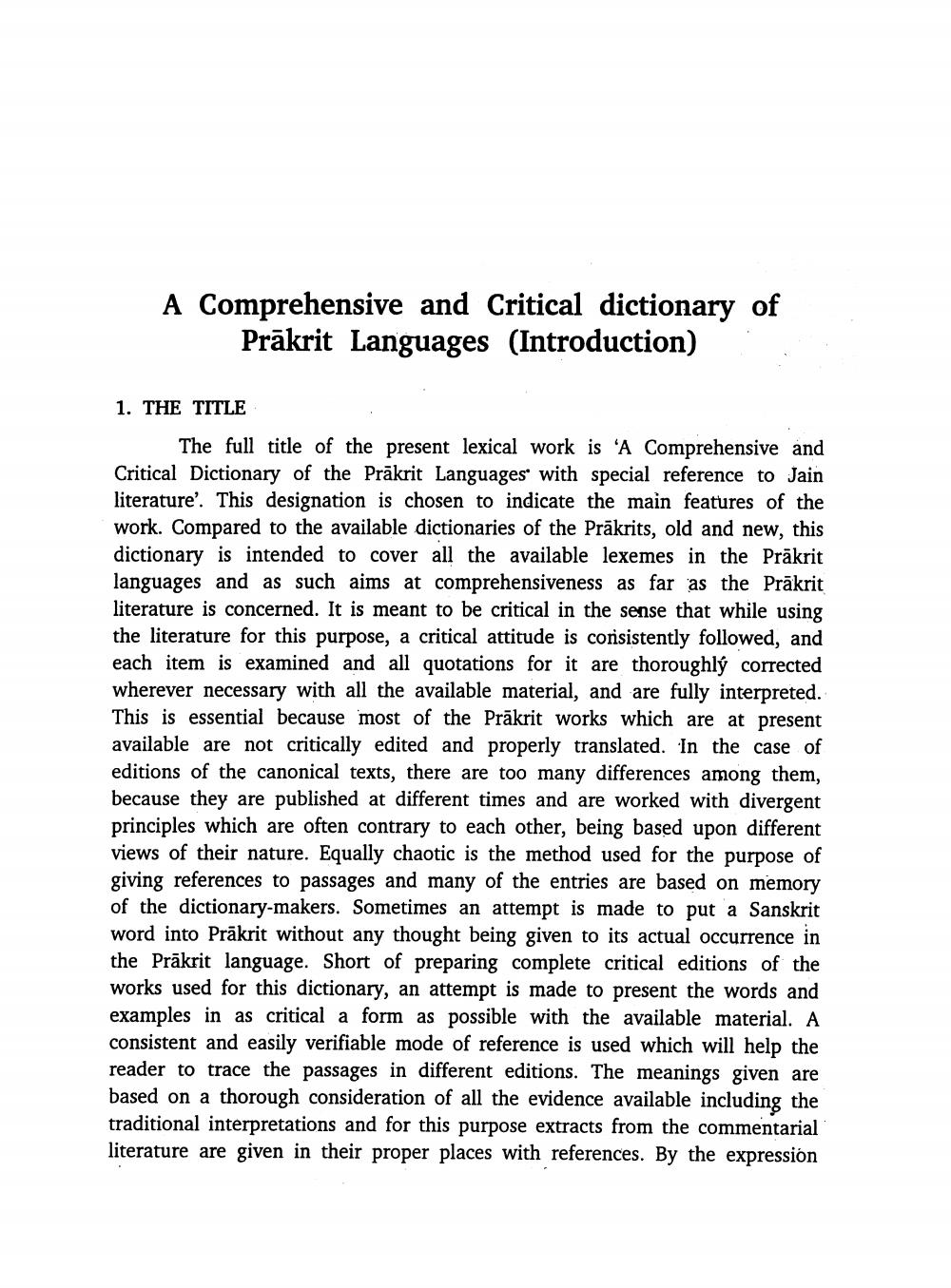________________
A Comprehensive and Critical dictionary of
Prākrit Languages (Introduction)
1. THE TITLE
The full title of the present lexical work is 'A Comprehensive and Critical Dictionary of the Prākrit Languages with special reference to Jain literature'. This designation is chosen to indicate the main features of the work. Compared to the available dictionaries of the Prākrits, old and new, this dictionary is intended to cover all the available lexemes in the Prākrit languages and as such aims at comprehensiveness as far as the Prākrit literature is concerned. It is meant to be critical in the sense that while using the literature for this purpose, a critical attitude is consistently followed, and each item is examined and all quotations for it are thoroughly corrected wherever necessary with all the available material, and are fully interpreted. This is essential because most of the Prākrit works which are at present available are not critically edited and properly translated. In the case of editions of the canonical texts, there are too many differences among them, because they are published at different times and are worked with divergent principles which are often contrary to each other, being based upon different views of their nature. Equally chaotic is the method used for the purpose of giving references to passages and many of the entries are based on memory of the dictionary-makers. Sometimes an attempt is made to put a Sanskrit word into Prākrit without any thought being given to its actual occurrence in the Prākrit language. Short of preparing complete critical editions of the works used for this dictionary, an attempt is made to present the words and examples in as critical a form as possible with the available material. A consistent and easily verifiable mode of reference is used which will help the reader to trace the passages in different editions. The meanings given are based on a thorough consideration of all the evidence available including the traditional interpretations and for this purpose extracts from the commentarial literature are given in their proper places with references. By the expression




